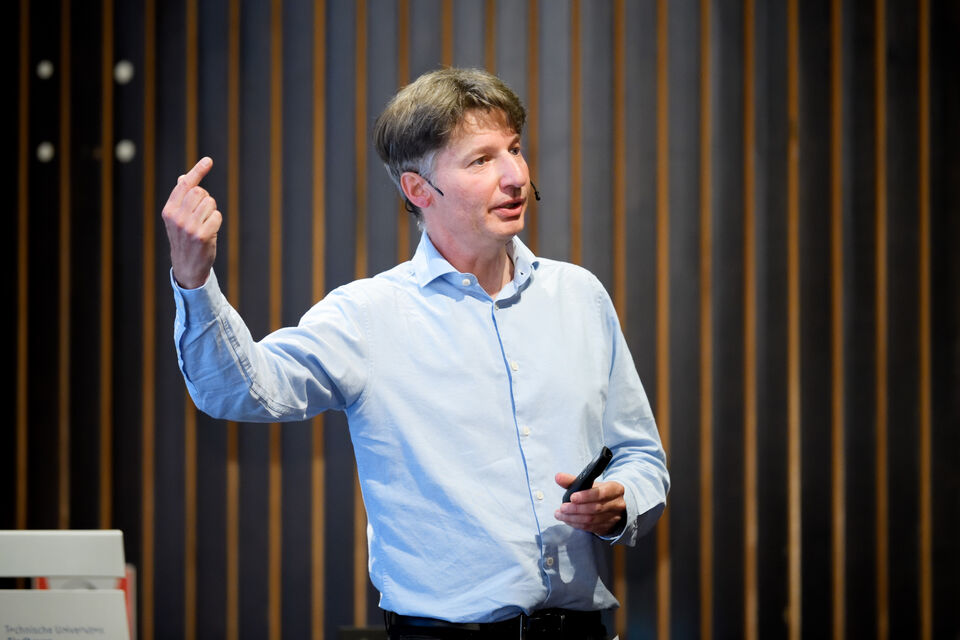Energy Prof Smeulders: don't reject gas just yet
The rapid pace that we've suddenly adopted for getting off the gas here in the Netherlands is only going to make our CO2 emissions rise in the coming years. This is predicted by TU/e Professor David Smeulders of Energy Technology. He is opposed to the current ‘sustainability religion’ as a result of which, he believes, rational arguments are now falling on deaf ears.
Just to be clear, Smeulders is no conservative climate denier. As a Professor at Mechanical Engineering, he works on systems for generating and storing renewable energy. In addition, he is an active member of GroenLinks in his home town of Nuenen. What bothers him, however, is the current hype surrounding the Climate Agreement and the resulting way in which natural gas is being rejected as a source of energy.
As of this month, for example, new neighborhoods yet to be built can no longer be connected to the gas network. “That is much too soon,” Smeulders points out. This is because we will continue to rely heavily on gas in the foreseeable future to meet our energy needs. The alternative is electricity from coal-fired power stations. And that creates much higher CO2 emissions, as he explained numerically in a letter sent last week to the Volkskrant.
“The climate agenda is being dominated by people with ideological convictions, but who are insufficiently familiar with the facts,” Smeulders believes. “Of course, switching to renewable electricity is in itself going in the right direction, but you shouldn't immediately be reaching for the stars. That is only counterproductive. The speed with which we want to achieve electrification is simply ten times too fast.” Let's first ensure that we can generate and store enough renewable energy, he believes, and only then disconnect the gas.
Groningen
“That huge numbers of us are keen to get off the gas now is, of course, due in part to the situation in Groningen. That's only natural,” knows Smeulders. “But it is a fatal mistake. Certainly, let's leave that gas in Groningen's subsurface, then we'll have something to fall back on in the future, if need be. Pumping that area empty is something I sometimes compare with selling our gold reserves. But this should be considered in isolation from the climate discussion. We can easily import gas from Norway or Great Britain to compensate the loss. That is high-calorific gas, unlike the gas from Groningen, but we have the resources to convert it to gas that suits our boilers.”
But what we should not do, according to him, is dismantle our gas infrastructure. “We may want to use it at some point to transport renewable fuels, such as solar fuels, or perhaps hydrogen.”
Heat pump
Smeulders is also opposed to the wholesale introduction of the heat pump; as they must run on electricity from coal-fired power stations for the time being, this switch will only generate more CO2. “In addition, heat pumps are a source of noise and I expect energy consumption to increase because they will also be used as air conditioners.”
Accordingly, he would like to see as many gas-fired power stations as possible turned back on instead of coal-fired power stations. And kerosene for aircraft and fuel oil for ships should be taken into account in CO2 emissions. “Until now these emissions have been simply painted out of the picture.”
Finally, the professor says, it is important to realize that CO2 does not respect borders. “All kinds of municipal covenants are now being entered into, but the problem is an international one.” This means that even the closure of our coal-fired power stations could have negative consequences, he is keen to point out. “The net effect could be that we import electricity from more polluted plants in Eastern Europe. Whereas these really should be the first to close.”
Unease
Smeulders was prompted to send the letter to the Volkskrant by a “general sense of unease,” he says. He is concerned by the lack of scientific arguments in the energy discussion. “A sustainability religion of sorts has arisen in which rational arguments are falling on deaf ears. Experts are not popular, because all they do is point out the shades of grey and the ifs and buts. So we need to present clear, understandable arguments, as I have tried to do in the Volkskrant. Because I think that as scientists it's our job in this discussion to voice our opinions and say: make sure you think before you act.”


Discussion